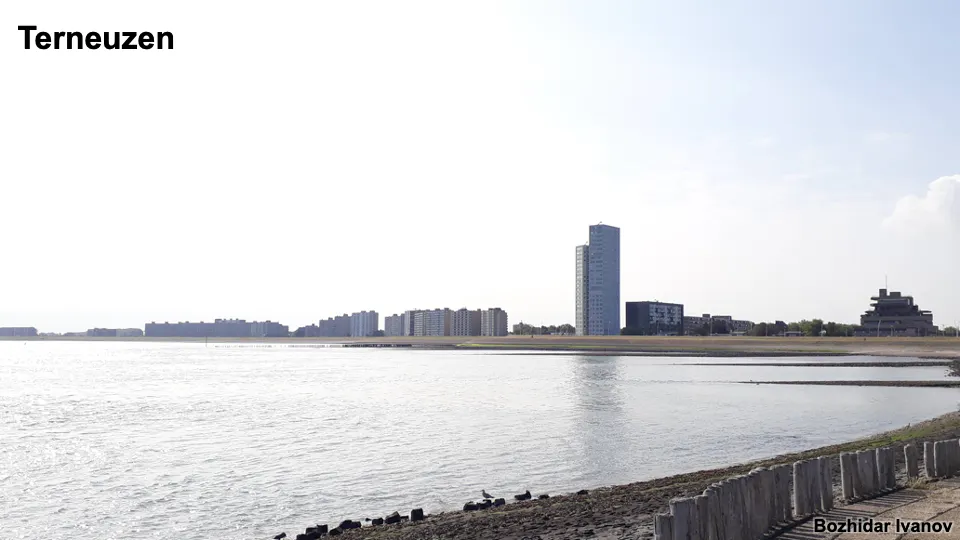Urban shrinkage and population decline as opportunity for rethinking established patterns of planning and policy making
October 2022
Urban shrinkage and population decline are challenges, experienced by multiple cities and regions in Europe. Traditionally, economic and political thought favours growth, hence it is no surprise that these two phenomena are seen as a crisis and planners and policy makers would rather avoid them. In order to identify how urban planning and policy making can use shrinkage and population decline as an opportunity, the trajectories of three different cases have been analysed in a recently published PhD research (Öffnet in neuem Fenster). The different policy and planning approaches in Bilbao (Spain) and Leipzig (Germany) between 2000 and 2015 show how various instruments on urban and regional policy level were overlapping. Another interesting example is the regional approach to population decline from the province of Zeeland (the Netherlands). These three cases illustrate that the necessary preconditions for finding the best possible approach to shrinkage or population decline in a specific place are:
common understanding of the issues that need to be addressed and the specific context;
consensus between levels of the planning system and the associated administrative capacity to deliver them; and
involvement of citizens and broader stakeholders.
Developing capacity to address shrinkage
Shrinking cities can use the challenge of shrinkage to develop the necessary administrative and planning capacity. Once a policy and planning objective of addressing shrinkage has been set, a proper coordination and robust cooperation between regional and local planners can prove helpful in drafting the necessary legislation and processes to re-plan a shrinking city. Creating the necessary infrastructure and network to develop data-driven decisions for shrinking cities can provide planners and policy makers with scientific support to identify the best possible course of action. Data gathering and targeted studies on particular issues, such as vacant land or housing, can contribute to better understanding of the scope of planning and also bring the citizens on board by providing a clear outline of the shrinkage challenges. This can later contribute to better acceptance of planning and policy decisions.

Efficiency as a guiding principle in spatial planning for shrinking cities
As shrinking cities are often confronted with oversized infrastructure and large-scale vacancy, especially obsolete industrial zones, the cases of Leipzig and Bilbao illustrate that enabling further densification brings better spatial quality and allows for reutilization of vacant lots. Targeting compact spatial patterns and revitalisation of areas through mixed use development can bring a more balanced and dynamic spatial pattern incorporating green and public spaces. In order to deliver this approach, however, local planning offices ought to ensure that they have the necessary capacity to deliver such regeneration projects if the areas in question are publicly owned. Useful instruments to facilitate such an approach can be land banks and properly maintained databases of developable land; dedicated public rehabilitation funds; proactive allocation of land. If the spatial development of a city is more dependent on private investment, authorities should be able to exercise more stringent control and find flexible partnership instruments to deliver the strategy. This can be done through spatial expansion limitations, stricter zoning, regimes of use and complete cadastral data, together with public-private partnerships.

Balancing shrinkage trajectories and growth aspirations
For cities or regions dealing with population decline it may be challenging to accept that the long-term trajectory might be associated with population decline. However, such a situation also opens a possibility for long-term objective setting and readjustment of the focus of planners and policy makers to new priorities. The lack of pressure to constantly respond to growth can be an opportunity for planners and policy makers to focus on overall quality of life and improving what is currently available in their city or region. This way the remaining population can be provided with better services and conditions while in the long-term the city or region can become a more attractive place to live or at least visit. The focus on economic growth can be balanced with these further policy priorities. In light of the emerging economic challenges across the EU, shrinking cities and regions can focus on preserving and adapting their existing industry, particularly in-line with the objectives of the European Green Deal. Similar efforts were observed in Zeeland where the heavy chemical industry is one of the biggest employers. In order for it to continue operating, the provincial government is supporting the industry in its transition to more environmentally friendly standards. Commitment to better living conditions for citizens was one of the main objectives of Leipzig while it gradually reached a regrowth trajectory – significant investments and policy initiatives were introduced to improve the housing conditions in the city. Bilbao has continuously improved the accessibility of its districts and access to public and green spaces while pursuing its competitiveness strategy. In all three cases, planners and policy makers have focused on improving living conditions and pursuing a better quality of life in parallel to stable economic base or on a pathway to regrowth.

In light of the uncertainties that cities and regions in Europe are currently facing, it is important to identify useful policy trajectories despite the challenges. Realising that shrinkage or population decline are the expected trends can be a sobering moment for planners and policy makers. But it does not have to turn into a dead end. Setting clear priorities, balancing expectations, and resolving long-standing issues can be a good starting point for a smarter way of addressing shrinkage or population decline.
This blogpost is based on the doctoral research by Bozhidar Ivanov at the University of Kaiserslautern (Germany) “Shrinking Smart: Identifying policy and planning alternatives for addressing urban shrinkage and population decline through cross-national comparative research on approaches from Spain, Germany and the Netherlands”. He wrote this PhD thesis in the context on the Marie Skłodowska-Curie Horizon 2020 project RE-City ITN (Öffnet in neuem Fenster) (Grant agreement: 813803). The dissertation can be found here (Öffnet in neuem Fenster).
by Bozhidar Ivanov
https://steadyhq.com/en/spatialforesight/posts/99a3b4a3-00f5-47f8-a45d-d1c36ea631e0 (Öffnet in neuem Fenster) https://steadyhq.com/en/spatialforesight/posts/50e0afaa-e9d6-4595-bb87-9ad31e530359 (Öffnet in neuem Fenster)

